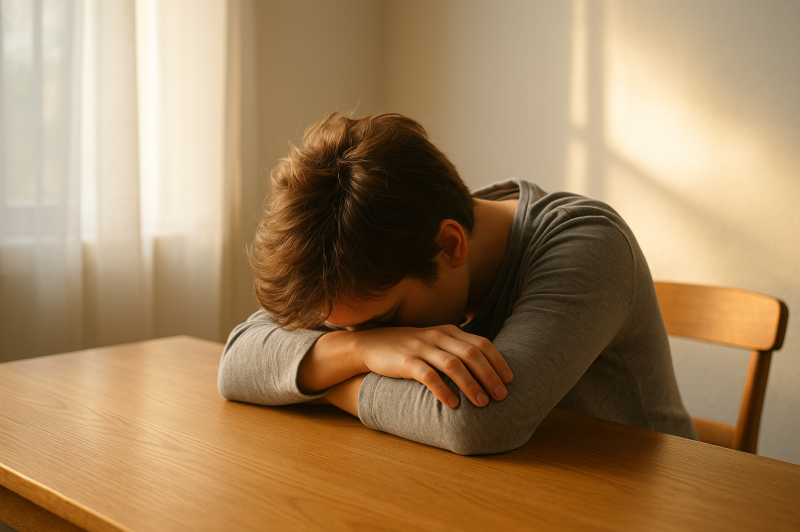
Caffeine withdrawal happens when your body adjusts to the absence of daily stimulation. Learn why it occurs, what symptoms to expect, and how to ease the transition.
By Sergio Toledo
Editor-in-Chief, Heed to Heal
Introduction
For many people, caffeine is woven into the fabric of daily life. A morning cup of coffee, a midday soda, or a quick energy drink can become as routine as breathing. Over time, the body gets used to this steady stream of stimulation. It becomes a familiar part of how we wake up, stay alert, and push through long days. But when you suddenly cut back or stop altogether, your body can react in ways that may feel uncomfortable or surprising.
Caffeine withdrawal is a real and common experience. It doesn’t mean something is wrong with you. It simply reflects how your system adjusts when it’s no longer receiving something it has grown accustomed to. Understanding why these symptoms happen can help you approach the process with more patience and less frustration.
Even though caffeine withdrawal can be unpleasant, it’s temporary. Knowing what to expect can make the transition easier and help you move through it with more confidence.
Why Caffeine Withdrawal Happens
Caffeine is a stimulant that works by blocking adenosine, the brain chemical that helps you feel sleepy. When you use caffeine regularly, your body adapts by producing more adenosine receptors to balance out the daily stimulation. This is why over time, the same amount of caffeine may not give you the same boost it once did.
When caffeine intake suddenly drops, all those extra adenosine receptors remain active. Without caffeine to block them, your brain is flooded with signals telling your body it’s tired. This is what leads to withdrawal symptoms such as headaches, fatigue, difficulty concentrating, and irritability. It’s not your imagination. It’s your brain recalibrating to a new normal.
Your nervous system also plays a role. Regular caffeine use keeps your body in a more stimulated state. When that stimulation is taken away, your system shifts, sometimes abruptly. That’s why withdrawal can feel a bit like hitting a wall.
Common Symptoms You Might Notice
Caffeine withdrawal doesn’t look the same for everyone. Some people experience mild discomfort, while others feel more noticeable effects for several days. Headaches are one of the most common symptoms because blood vessels in the brain temporarily widen when caffeine is no longer present. This change can lead to a dull, persistent ache that tends to improve after a few days.
Fatigue and sleepiness are also typical. Your body is responding to the sudden surge of adenosine activity. You may also notice irritability, mood changes, or trouble focusing, especially if you’ve relied on caffeine to stay alert for a long time. Some people describe feeling foggy or slower than usual, which can make even normal daily activities feel harder for a little while.
The good news is that these symptoms are temporary. Most people start to feel better within a few days, and for many, the discomfort is mild and manageable.
Easing the Transition
If you decide to reduce or stop your caffeine intake, going gently can make a big difference. Instead of quitting all at once, try tapering down gradually. This allows your body to adjust more smoothly and can reduce the intensity of withdrawal symptoms. For example, you might start by replacing your afternoon coffee with water or herbal tea, then slowly decrease your morning intake over several days.
Staying hydrated also helps. Caffeine is a mild diuretic, so when you stop consuming it, your body may go through fluid shifts. Drinking plenty of water can ease headaches and fatigue. Getting enough rest and eating regular meals can also give your system the support it needs while it finds its balance again.
If withdrawal symptoms appear, it helps to remind yourself that what you’re feeling is temporary. Your body is simply resetting. Each day that passes brings you closer to a more stable and natural rhythm.
References
- Juliano, Laura M., and Griffiths, Roland R. “A Critical Review of Caffeine Withdrawal.” Experimental and Clinical Psychopharmacology, 2004.
- Meredith, Steven E. “Caffeine Use and Withdrawal.” The Journal of Caffeine Research, 2013.
- Addicott, Merideth A. “Caffeine Use Disorder: A Review of the Evidence.” Journal of Caffeine and Adenosine Research, 2017.
Originally published by Heed to Heal, 10.15.2025, under the terms of a Creative Commons Attribution-NonCommercial-NoDerivatives 4.0 International license.





